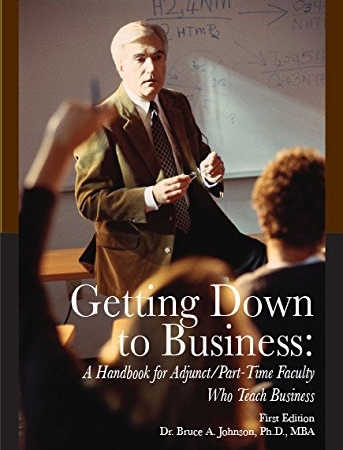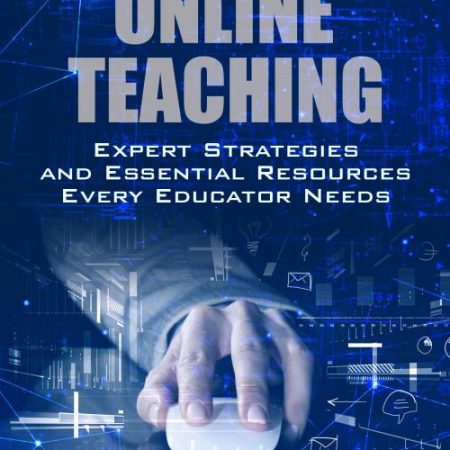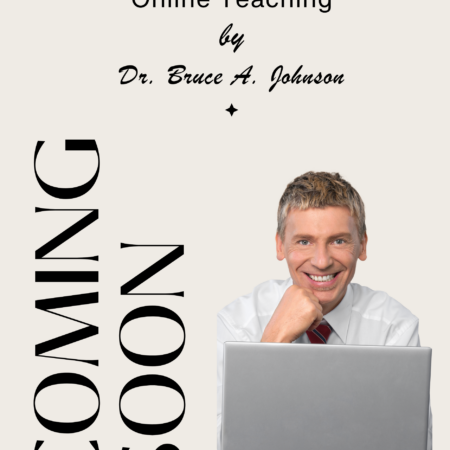Description
Overview:
Whether you are teaching online classes, getting started, or simply want to add a new instructional strategy, this book is certain to provide something of value for your career.
Dr. J developed an innovative approach to online teaching with an instructional strategy called Appreciative Andragogy. This takes Appreciative Inquiry, an organizational developmental strategy, and combines it with the principle of teaching adults called Andragogy. This book is a copy of Dr. J’s dissertation study and research, with an online instructional strategy you can put to work today. Appreciative Andragogy is designed to help strengthen your relationships with students, while also influencing their level of performance, motivation, and engagement.
Appreciative Andragogy emphasizes the positive nature of adult learning and the enhanced view of self that will occur through supportive interactions with an instructor. Through the use of appreciative andragogy as an instructional method, an instructor may have a tool that can build nurturing relationships and increase the instructor’s presence within an online classroom environment.
With a positive approach to student development the student is likely to experience a greater sense of motivation, engagement in the classroom, and improved performance overall. Now you can learn about this innovative instructional strategy in Dr. J’s book, Appreciative Andragogy: Taking the Distance Out of Distance Learning.
Dr. Bruce A. Johnson
The following list provides the chapter titles within this book.
CHAPTER 1. INTRODUCTION
CHAPTER 2. LITERATURE REVIEW
Adult Learning
Online Learning
Online Instructor
Online Learner
Appreciative Inquiry
CHAPTER 3. METHODOLOGY
CHAPTER 4. DATA COLLECTION AND ANALYSIS
Introduction
Participants
Case Study Summary: Participant 1
Case Study Summary: Participant 2
Case Study Summary: Participant 3
Case Study Summary: Participant 4
Case Study Summary: Participant 5
Case Study Summary: Participant 6
Case Study Summary: Participant 7
Case Study Summary: Participant 8
Case Study Summary: Participant 9
Case Study Summary: Cross Case Report
Data Collection
Data Analysis Process
Conclusion
CHAPTER 5. RESULTS, CONCLUSIONS, AND RECOMMENDATIONS
Results
Conclusions
Recommendations
REFERENCES
APPENDIX A. WEEK ONE PARTICIPANT WORKSHEET ONE
APPENDIX B. WEEK ONE PARTICIPANT WORKSHEET TWO
APPENDIX C. WEEK TWO PARTICIPANT INTERVIEW SCRIPT
APPENDIX D. WEEK TWO PARTICIPANT WORKSHEET
APPENDIX E. WEEK THREE PARTICIPANT INTERVIEW SCRIPT
APPENDIX F. WEEK SEVEN PARTICIPANT WORKSHEET ONE
APPENDIX G. WEEK SEVEN PARTICIPANT WORKSHEET TWO
APPENDIX H. WEEK EIGHT PARTICIPANT INTERVIEW SCRIPT
Excerpt from CHAPTER 1. INTRODUCTION
“The online classroom does not change the basic principles of adult learning; rather the format of adult learning has changed when it becomes enabled by the use of technology. The process of adult learning in any classroom environment involves the acquisition of information, interaction with that information through activities, and the creation of new knowledge. The classroom provides a learning environment that becomes the context for knowledge acquisition by establishing conditions that are conducive to learning. The structure of this environment determines the overall effectiveness of the learning process (Caffarella, 2002).
Within a traditional classroom the instructor is physically present and it is that presence that maintains social interactions and builds relationships with the students. The instructor can gauge the level of student motivation and adapt the instructional methods used based upon what is physically observed. Also visible to the instructor is the student’s level of engagement and participation in the class. In addition, the instructor is available to observe, guide, and discuss the student’s performance and address any potential issues. These physical observations are often absent from the online classroom environment.
The online classroom may change the nature of the student’s motivation, engagement, and performance. A student’s need for self-motivation and taking responsibility for his or her class participation and assignment completion may be greater with an online classroom. Some students use assignment deadlines and grades as their source of motivation. The online student’s engagement in the class is usually encouraged through the use of discussion boards and asynchronous interactions with his or her instructor. Performance in an online classroom environment is based upon the student’s work product, whether this is accomplished through group activities, online assessments, or written assignments. Students are provided feedback from their instructor and the level of feedback can vary from a letter grade to the number of points earned, or the inclusion of developmental comments. Depending upon the level of involvement by the instructor and the student, the online classroom has the potential to become very mechanical in nature and it may easy for a student to experience a sense of disconnection from the class and his or her instructor.
Another environment where issues of individual motivation, engagement and performance are studied can be found within the organizational setting. These issues are considered essential factors of a successful employee and lead to improved overall organizational performance. The field of organizational development has produced numerous theories of employee development and one theory that addresses development from a positive frame of reference is appreciative inquiry. David Cooperrider and Suresh Srivastva developed appreciative inquiry in 1987 as a means of facilitating organizational change through the use of a positive approach (Orem, Binkert, & Clancy, 2007). Appreciative inquiry has been successfully utilized within organizations and has demonstrated an ability to affect individual motivation, engagement, and performance. Due to this success of appreciative inquiry and its ability to impact individuals as well as organizations, it has the potential to be adapted to other environments, including the online classroom environment. As an instructional method, appreciative inquiry has a potential to help bridge the gap between the instructor and student within an online classroom. Appreciative inquiry also has the potential to assist in the development of positive working relationships, which in turn may improve the student’s motivation, engagement, and performance.”
Note: The dissertation was completed in 2010, the book was published in 2013.
Added Bonus #1: You will receive a copy of Dr. J’s journal article, which was a summary of his initial work involving appreciative andragogy, Transformation of Online Teaching Practices through Implementation of Appreciative Inquiry, published in 2014.
Added Bonus #2: You will receive a copy of Dr. J’s handout provided at the Online Learning Consortium International Conference in 2015, when he shared a strategy for implementing appreciative andragogy as part of an instructional strategy. Dr. J’s presentation title: Transformation of Online Teaching Practices through Implementation of Appreciative Inquiry.
Added Bonus #3: You will receive a copy of Dr. J’s handout, for his presentation in 2019 at a virtual faculty conference, in which he shared the evolution of his use of appreciative andragogy over the nine years since it was originally developed. This is a complete overview, consisting of 92 slides, providing a complete overview of the origins of appreciative andragogy and its evolution to appreciative teaching.
Added Bonus #4: As an added bonus, you’ll receive a timeless classic, a paperback copy of the following: Think and Grow Rich, a classic bestseller by Napoleon Hill.
Think and Grow Rich has been called the “Granddaddy of All Motivational Literature.” It was the first book to boldly ask, “What makes a winner?” The man who asked and listened for the answer, Napoleon Hill, is now counted in the top ranks of the world’s winners himself. The most famous of all teachers of success spent “a fortune and the better part of a lifetime of effort” to produce the “Law of Success” philosophy that forms the basis of his books and that is so powerfully summarized in this one.
In Think and Grow Rich, published in 1937, Hill draws on stories of Andrew Carnegie, Thomas Edison, Henry Ford, and other millionaires of his generation to illustrate his principles.
Hurry: While supplies last.
Purchase Your Copy Today:
Order your copy signed by the author, Dr. Bruce A. Johnson.
Take advantage of the sale price and use Dr. J’s book for your ongoing professional development.





